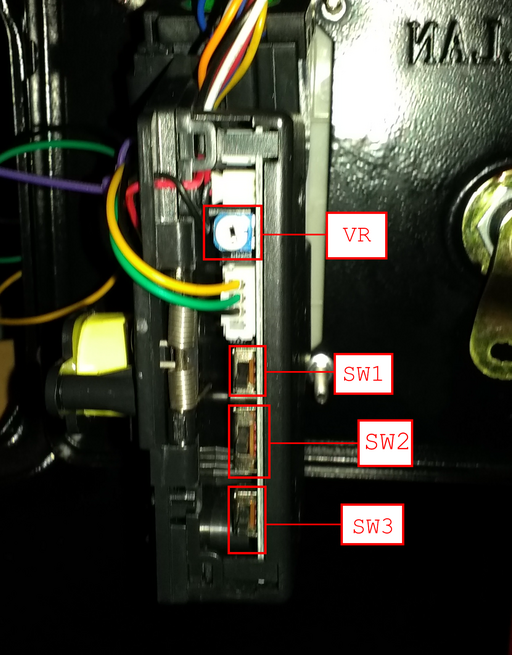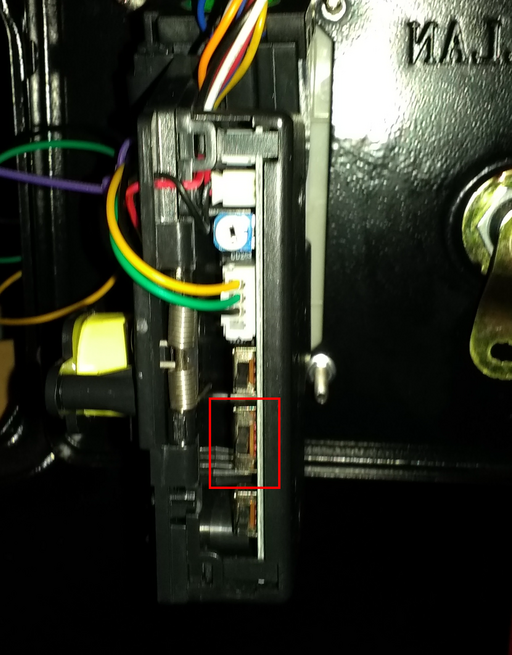Allan Universal/Comparable Coin Slot Mechanism (JY 133A)
The Allan JY133A is an induction-based coin acceptor. It features an adaptive mechanism that allows the owner to use a coin as a template for detecting coin insertion. From a usability perspective, the coin acceptor is easy to operate and requires that the owner lift a latch and slide a coin inside to be used as a template for accepting coins.
The coin acceptor has three switches on the back and a potentiometer marked VR on the back.
The potentiometer marked VR can be slid counter-clockwise to make the accuracy of detecting coins less permissive, respectively clockwise to make the detection of coins more strict. In case coins are inserted and the JY 133A displays an intermittently flashing LED and returns the coin, then the VR knob should be slid clockwise till the coin acceptor displays no error. Conversely, if other coins of different sizes seem to be accepted, then the VR knob should be slid counter-clockwise.
| Switches | Description |
|---|---|
SW1 | Unknown (manual mentions PC with revolving lamp?) |
SW2 | Coin signal period. |
SW3 | Unknown. |
Coin Acceptor Coin Signal
Taking as an example the JY 133A coin acceptor, the second switch marked SW2 on the plastic bevel allows the user to specify the signal length (time) that the coin acceptor will generate when a coin is inserted.
The switch on the JY 133A is a SPTR switch with three positions corresponding to:
 (fast),
(fast), (medium),
(medium), (slow)
(slow)
the descriptions in the manual (if any) mentions some descriptions such as "suitable for amusement machine" for the  setting but does not explain what the setting is for.
setting but does not explain what the setting is for.
Imagine an ideal signal plotted in time:
v ^ T | ....... | . . |-----+ +-----+ +-----+ | | | | | | | | | | 0 +-----+------+-----+------+-----> t | . . | ........ | T
where:
 is the amplitude, binary in this display with a maximum value of
is the amplitude, binary in this display with a maximum value of  and a minimum value of
and a minimum value of  ,
, is the period of the signal or the length,
is the period of the signal or the length,
Switch SW2 on the JY 133A allows the user to pick the length of the signal generated whenever a coin is inserted. If you load up any game on the arcade, enter the service menu and then pick the input test you can observe the different settings of SW2:
Inserting a coin should show the 0 next to the COIN label turn into a 1 and then turn back into a 0. The time it takes for the number 1 to be displayed is exactly the value of  .
.
In other words, if some games do not seem to accept a coin even though the coin acceptor does not display an error, the switch SW2 should be switched to a position with a larger period  .
.
It might be that the "suitable for amusement machine" description for the  setting is that some arcade games might interpret a longer period
setting is that some arcade games might interpret a longer period  as having inserted more than one coin such that the creator of the coin acceptor labeled the setting as "amusement" as in to not be used in production.
as having inserted more than one coin such that the creator of the coin acceptor labeled the setting as "amusement" as in to not be used in production.


